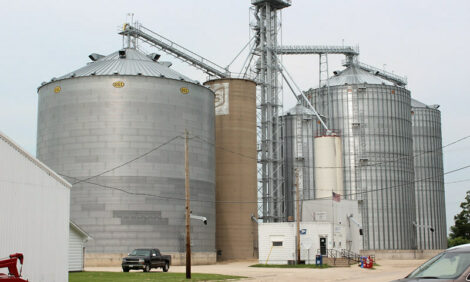



Belgian Group Seeks to Eliminate MRSA in Pigs
BELGIUM - The three-year project is being undertaken by the Veterinary and Agrochemical Research Centre (VARC; known locally as CODA-CERVA) and Vrije Universiteit Brussel (VUB) with the aim to eliminate methicillin-resistant Staphylococcus aureus (MRSA) from pigs.According to VARC, MRSA are multi-drug resistant bacteria that cause severe problems in human medicine. A new reservoir of MRSA was discovered recently in pigs, but different domestic and non-domestic studies show that other species may be colonised as well. Previously, MRSA infections were rarely reported among animal species other than horses. In the case of cattle, this type was recently found in a few cases of clinical and sub-clinical mastitis. This animal reservoir comprises a specific type: the 'animal-related type', which may be sub-divided into few related sub-types. The animal-related type may also be found among farmers. Dogs too, are reported to have had MRSA infections, however, these MRSA strains are primarily of human origin.
Two types are described for human beings: the hospital-acquired (HA-MRSA) and community-associated MRSA (CA-MRSA). The bacteria cause serious infections often leading to a fatal outcome. The rare HA-MRSA infections described among horses and dogs were caused by human contamination during surgery.
Animal-associated MRSA create a potential danger for both animal and public health. These animal-associated MRSA first of all complicate the diagnosis as it is difficult to distinguish them from the more dangerous human HA-MRSA and secondly its virulence may vary. This animal-associated MRSA, which can maintain itself in various ecosystems, may also acquire virulence characteristics located on mobile genetic elements, thus becoming a highly pathogenic strain. Hence, a proactive approach is needed. Antibiotic therapy to eliminate MRSA from animals is an complicated process and is not recommended due to the risk that the bacteria may become even more multi-resistant. Other measures, such as hygiene precautions, may have only a partial effect. Few alternatives are known to eliminate this bacterium.
As MRSA found among animals are very clonal, and as phages generally have a very strict host range, phage-coded endolysins are a highly suitable option of combating specific MRSA in the animal reservoir. As S. aureus and therefore MRSA also colonise epithelial tissues such as the skin and the nose, these phage enzymes can be deposited on these surfaces.
The aim of this project is to eliminate MRSA in pigs, or at least achieve a significant reduction in the level of colonisation, thus lowering or preventing the risk of human beings being infected. To achieve this, phage endolysins are over-produced in E. coli or Pichia pastoris. They are purified for use in the in vivo treatment of experimentally infected animals.
The specific objectives of the project are:
- to isolate and over-produce a representative collection of phage-coded lysins acting against specific MRSA clones from pigs
- to characterise the host range of these enzymes
- to study the efficiency, in vitro and in animal models, of the bactericide action of these phage enzymes
- to test methods for administering the phage enzyme preparation in the nose and on the skin of pigs, and
- to test the efficiency of the phage enzyme treatment in eliminating MRSA colonisation in pigs.








